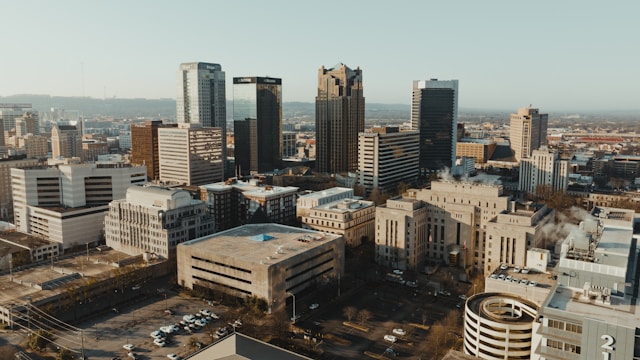Investing in short-term rental (STR) properties requires an in-depth understanding of local regulations. Below is a comprehensive list of frequently asked questions (FAQs) for STR operators and investors to help you navigate the rules in Birmingham and stay compliant while maximizing profitability.
1. What is considered a short-term rental in Birmingham?
At present, Birmingham does not have specific short-term rental regulations or ordinances. The city relies on general business laws for licensing and taxation. However, significant changes are under review, and the City Council vote on January 22, 2025, could introduce zoning restrictions, permitting requirements, and operational rules.
Short-term rentals (STRs) are typically defined as transient use of any dwelling or any part of a dwelling for overnight occupancy for less than 30 consecutive, as proposed in the Highland Park STR Draft City Code Amendment.
2. Do I need a permit to operate a short-term rental in Birmingham?
While there are no finalized STR-specific regulations, operators are required to follow general business guidelines outlined in the General Information for New Businesses. This includes obtaining a business license and paying applicable taxes. Proposed regulations in the draft amendment suggest a future permit requirement.
3. What are the zoning laws for STRs in Birmingham?
Currently, there are no finalized zoning laws specifically for STRs. The Birmingham Zoning Committee has recommended prohibiting STRs in residential zones unless the property is owner-occupied. This recommendation reflects concerns over maintaining neighborhood integrity and preventing disruptions caused by non-owner-occupied STRs.
Additionally, neighborhood associations may need to approve STR permits. This would add an additional layer of oversight specific to certain communities.The Birmingham City Council will vote on these proposals on January 22, 2025.
4. Are there occupancy limits for short-term rentals in Birmingham?
No occupancy limits are currently enforced for STRs, but the draft code amendment suggests implementing limits based on property size and safety standards.
Top 100 Airbnb Rental Markets

Instantly compare top 100 short-term (Airbnb) rental markets in the US
5. What taxes are short-term rental hosts required to pay?
STR hosts are required to collect and remit lodging taxes as outlined in the General Information for New Businesses. Platforms like Airbnb may facilitate tax collection and guests will pay the following tax as part of their reservation:
- Lodging and Hotel Tax: 6.5% of the listing price including any cleaning fees, for reservations 179 nights and shorter. For detailed information, visit the City of Birmingham Tax Filing website.
- Lodging and Hotel Fee: $3 per room per night for all reservations. For detailed information, visit the City of Birmingham Tax Filing website.
6. What are the safety and health requirements for STR properties in Birmingham?
There are no specific safety or health requirements for STRs at this time. However, the Highland Park STR Draft City Code Amendment for example includes proposed safety measures like smoke detectors and fire extinguishers.
7. How are noise and nuisance complaints handled in Birmingham?
Currently, noise and nuisance issues are managed under general city ordinances. The proposed ordinance will contain stricter measures, including requiring a local contact person to address complaints.
8. Can I manage multiple short-term rental properties in Birmingham?
There are no current restrictions on managing multiple STRs. However, proposed regulations may limit the number of permits per owner to reduce the concentration of non-owner-occupied STRs.
9. What are the penalties for non-compliance with STR regulations in Birmingham?
Since no STR-specific regulations are in place yet, penalties for non-compliance would likely fall under general business laws. Future penalties proposed in the draft include fines, permit revocation, and other measures.
10. Are there any updates or changes to Birmingham’s STR regulations I should be aware of?
Yes. The Birmingham City Council is scheduled to vote on proposed STR regulations on January 22, 2025. This vote will determine new rules for zoning, permitting, and operations.
11. Can I self-manage my short-term rental, or do I need a property management company in Birmingham?
You can self-manage an STR as there are no requirements mandating the use of a property management company.
12. What are the insurance requirements for short-term rentals in Birmingham?
There are no specific insurance requirements for STRs at this time. It is advisable to carry liability insurance, as platforms like Airbnb only provide limited coverage.
13. Are there any local rules regarding hosting platforms (e.g., Airbnb, Vrbo) in Birmingham?
There are no STR-specific platform rules yet. The draft amendment suggests regulations that could affect how platforms operate in Birmingham, such as requiring compliance with local permits. Currently, hosting platforms are remitting the tax on behalf of the hosts.
14. What are the inspection requirements for STRs in Birmingham?
Inspections are not currently required for STRs. Proposed regulations include safety inspections as part of the permitting process.
15. Are there any neighborhood-specific restrictions for STRs in Birmingham?
Currently, there are no enforceable neighborhood-specific restrictions. The current proposal that will be discussed by the City Council would possibly be requiring approval from neighborhood associations for STR permits. Additionally,The Birmingham Zoning Committee has recommended prohibiting STRs in residential zones unless the property is owner-occupied. This recommendation reflects concerns over maintaining neighborhood integrity and preventing disruptions caused by non-owner-occupied STRs.
16. Is there a cap on the number of STR permits issued in Birmingham?
There is no cap on the number of Short-Term Rental (STR) permits in Birmingham, AL. The proposed regulations under review may limit STR permits to 1% of residential units citywide.
17. What parking requirements exist for STRs in Birmingham?
There are no existing parking requirements for STRs. Proposed regulations suggest requiring adequate parking spaces based on property size and location.


